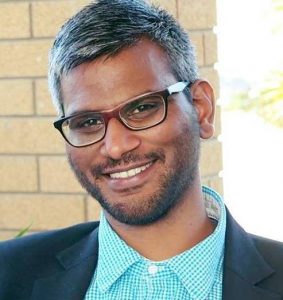Academic Talks
Speakers
 Prof. Robbie Sutton
Prof. Robbie Sutton
About
Robbie is a Professor of Social Psychology, Director of Graduate Studies (Research), a member of the Undergraduate Outreach Team and Postgraduate Progression Monitoring Lead in the School of Psychology.
Research interests
Robbie is interested in the social psychology of justice and (in)equality, including:
- Just-world beliefs
These refer to the extent to which people believe they, and others, receive the treatment and life outcomes they deserve. These are related to psychological health, functioning, and a raft of social attitudes (for more information, see Hafer & Sutton, 2014; Sutton & Douglas, 2005; Sutton & Winnard, 2007; Sutton et al., 2008; Wu et al., 2013 in the publication list). - Conspiracy beliefs
Robbie collaborates with Professor Karen Douglas on conspiracy belief (see Douglas & Sutton, 2008, 2011, Sutton & Douglas, 2014. Their work examines the psychological mechanisms that cause people to entertain such beliefs. - Immanent justice reasoning
Robbie collaborates with Mitch Callan (University of Essex) on why people tend to perceive that a person’s misfortune must be attributable to some prior misdeed of theirs, even when the two cannot be related (Callan et al., 2010, 2013, 2014). - Gender, sexism and inequality
Robbie has studied several aspects of gender inequality, including gendered fear of crime (Sutton & Farrall, 2005, 2008; Sutton, Robinson & Farrall, 2011), sexist intrusions on the autonomy of women during pregnancy (Murphy et al., 2011; Sutton, Douglas, & McClellan, 2011), and gender inequality in educational attainment (Hartley & Sutton, 2013).
Publications & More
You can find out more about Robbie’s work here: https://www.kent.ac.uk/psychology/people/245/sutton-robbie
 Dr. Kristof Dhont
Dr. Kristof Dhont
About
Kristof Dhont, PhD, is a Senior Lecturer in Psychology and Director of Graduate Studies (Research) in the School of Psychology at the University of Kent. He is the founder and director of SHARKLab, dedicated to the study human intergroup and human-animal relations. He currently serves as Associate Editor for the journal Group Processes & Intergroup Relations (GPIR) and as Consulting Editor for the European Journal of Personality (EJP).
Research interests
Kristof’s interests include the situational and personality factors that drive and sustain intergroup biases such as ethnic and gender-based prejudice as well as speciesism, with a special interest in social-ideological variables (e.g. social dominance orientation and authoritarianism) and identity-based processes.
He investigates the factors shaping people’s perceptions and thinking about animals, the complexities and paradoxes in human-animal relations, and the moral psychology of eating and exploiting animals. Some of the key questions concern:
- How do people perceive and think about animals as a social outgroup (or multiple outgroups)?
- Why do people love and care about animals, yet also eat and exploit them?
- How can prejudice towards human and non-human animals be reduced, for instance through positive intergroup contact and increasing empathy?
- What are the implications of our attitudes and behaviors toward animals for human intergroup relations?
He also investigates the impact of contextual factors such as societal intergroup norms and threat on ideology and intergroup attitudes and the psychological factors that motivate people to support social change.
Publications & More
You can find out more about Kristof’s work here: https://www.kent.ac.uk/psychology/people/220/dhont-kristof
 Dr. Nikhil Sengupta
Dr. Nikhil Sengupta
About
Dr Nikhil Sengupta is a Lecturer in Social and Organisational Psychology in the School of Psychology.
Research interests
Nikhil studies how inequality is produced, maintained and challenged, with a strong focus on the psychology of the victims of inequality (e.g., members of disadvantaged social groups). In one line of work, he has examined the consequences of inequality for people’s wellbeing and the types of socio-political ideologies people use to make sense of inequality.
In another line of work, Nikhil has investigated how contact between and within social groups affect political attitudes relevant to inequality. He approaches these topics primarily by using advanced statistical techniques to analyse data from nationally representative longitudinal surveys in several countries, including New Zealand, India, the UK and the USA.
For more information on the longitudinal survey in New Zealand with which he works, please visit: http://nzavs.auckland.ac.nz
For more information on the longitudinal survey in India with which he works, please visit: https://www.lok-foundation.org/lok-survey-project/
Publications & More
You can find out more about Nikhil’s work here: https://www.kent.ac.uk/psychology/people/1920/sengupta-nikhil
Research Partnership Talks
Speakers
 Dr. Lindsey Cameron
Dr. Lindsey Cameron
About
Dr Lindsey Cameron is a Senior Lecturer in Psychology and Director of Education in the School of Psychology. Her area of research is social developmental psychology.
Research interests
Lindsey is interested in how children become ‘social beings’: how do children develop the social knowledge and skills that we have as adults take for granted? Specifically, she is interested in how inter-group processes develop throughout childhood. Her research interests are as follows:
- The development of inter-group attitudes in children and the role of social norms, self-presentation, cognitive development and in-group identification in determining these attitudes
- The development of school-based interventions to change children’s inter-group attitudes
- Inter-group contact (direct and indirect) and novel interventions based on this approach
- Measuring the impact of intercultural education interventions on attitudes, stereotypes, cultural awareness and knowledge
- Acculturation in childhood
- The experience of prejudice and discrimination, and its consequences for social development
Collaborators
Charities and diversity education organisations across Europe, including:
- One Globe Kids
- Rights and Equality Sandwell
- The Office of the Children’s Commissioner
- Anti-bullying charity Salus
- People United
You can find out more about Lindsey’s work here: https://www.kent.ac.uk/psychology/people/218/cameron-lindsey
 Dr. Hannah Swift
Dr. Hannah Swift
About
Hannah is a senior lecturer in Psychology and the Eastern Academic Research Consortium (Eastern ARC) Research Fellow for the Quantitative Social Sciences. The Eastern ARC is a joint initiative between the University of Essex, the University of East Anglia and the University of Kent.
Hannah’s role is to build collaboration, research and capacity within the quantitative social sciences. Please do not hesitate to contact her if you would like any further information on Eastern ARC activities, if you are interested in working with quantitative social scientists from any Eastern ARC institution or if you have any innovative initiatives or ideas to build collaborations between Eastern ARC members.
Research interests
Hannah uses a range of (mostly quantitative) research methods to investigate processes of ageism, people’s attitudes to age and the effects of age stereotypes, which have important practical and policy implications. She uses experimental research methods to investigate the detrimental impact of age stereotypes that denote older people as incompetent on a) older people’s cognitive and physical functioning and b) decision making processes, such as hiring.
Hannah applies multilevel modelling techniques to the 2008-9 European Social Survey data to explore the impact of experiences of ageism and attitudes to age on well-being. She has an interest in using ‘real world observational data’ to explore how ageism manifests in everyday life. Hannah is also interested in exploring the impact of positive attitudes to age and conditions that contribute to healthy, active and successful ageing.
Her research has been supported by over £500,000 in funding, notable projects include:
- The Living through Landscapes Project. This project, coordinated by Learning though Landscapes and funded by the Big Lottery, is redesigning and transforming the outside spaces of 30 care settings, across the UK, to make them more suitable for people living with dementia. In coloration with Ann-Marie Towers, we are conducting research and evaluating the impact of the project.
- Values, Attitudes and Behaviours. For the Equality and Human Rights Commission we provided a comprehensive review of UK evidence (between 2005-2015) to explore the links between prejudice attitudes and discriminatory and unlawful behaviour.
- Mobilising the Potential of Active Ageing in Europe (MOPACT). Funded by the FP7 framework, this research project is comparing representations of older people in
- UK and Portuguese print media and exploring the implications for activing ageing.
You can find out more about Hannah’s work here: https://www.kent.ac.uk/psychology/people/276/swift-hannah
In Conversation with… Prof. Dominic Abrams
 Prof. Dominic Abrams
Prof. Dominic Abrams
About
Dominic is a Professor of Social Psychology and the Director of the Centre for the Study of Group Processes in the School of Psychology at the University of Kent. His research examines all aspects of relations between different social groups and the behaviour of groups in general.
Dominic has extensive experience in the areas of equality and human rights, prejudice, discrimination, social attitudes and social change across the life course. His expertise spans social and developmental psychology and gerontology and uses a wide range of methods, ranging from laboratory and field experiments to national and international surveys.
Dominic has worked closely both with the charitable sector (notably Age UK, the Anne Frank Trust, and People United), and with government departments (DWP, CLG) as well as with the Equality and Human Rights Commission to develop and evaluate interventions to reduce prejudice and discrimination. He has authored and coauthored over 200 papers and numerous books on groups, identity and social inclusion, and edits the journal Group Processes and Intergroup Relations.
Dominic is also a fellow of several professional associations and recipient of the British Psychological Society’s Presidents’ award for distinguished contribution to psychology. He is the only psychologist outside America to have been elected president of Division 9 of the American Psychological Association (the Society for the Psychological Study of Social Issues), as well as being a recipient of its distinguished contribution award. He was also a founding member of the Academy of Social Sciences, and one of his first acts was to chair the committee that drew together all of the different learned societies. More recently, he was appointed Vice President for Social Sciences at the British Academy, where his role is similarly to be able to link with and draw on experts across the entire range of disciplines.
Research interests
Dominic’s main areas of current research are in the broad area of group processes and intergroup relations. Themes and topics include:
- Social exclusion and prejudice
- Intergroup contact, collective action protest
- Deviance (particularly the subjective group dynamics model)
- Development of understanding about groups and group processes in middle childhood and adolescence
- Ageism and age stereotypes, including stereotype threat
- Social identity in organisational contexts.
You can find out more about Dominic’s work here: https://www.kent.ac.uk/psychology/people/212/abrams-dominic
